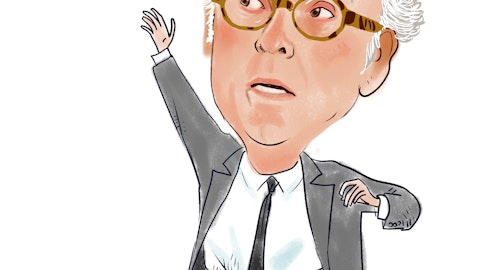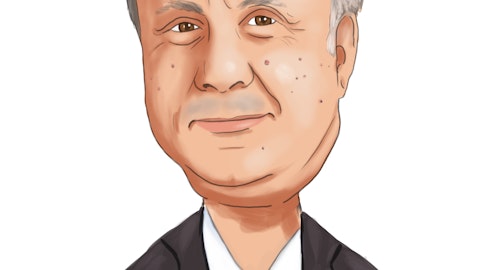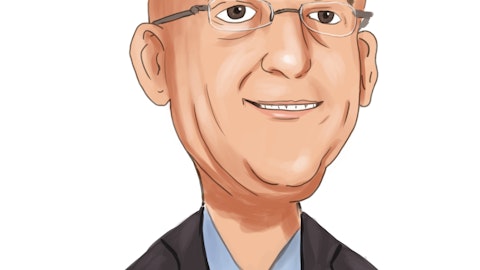So, I think for now, we’re just going to explore other kind of options. And I think what is happening now is there is more user to actually use that because of differentiating features, that’s probably the biggest short-term gain, and also, for instance, the longer-time spent. So, I guess that’s a high-level capturing of what might come into view.
Alicia Yap: Okay. So, do you expect that will be helping on increasing revenue opportunity within the share that you were already seeing it, or we will have to wait a little bit longer?
Song Lin: Yes. So, I think it’s a billion-dollar question, right, more like what’s that impact on the revenue? So, I don’t know, it’s too early to tell. I think — I don’t think we have actually budgeted it in our forecast or guidance, because we should be prudent. But as I said, right, if there’s more users using us, then, of course, more naturally, that will drive to higher revenue. It’s just quite early. So, we don’t want to maybe guess on that. But I think it’s a very interesting opportunity for us.
Alicia Yap: I see. Okay, great. Thanks, Song. Second question, I think company’s comment on the press release about the EU sanction package that happened in December, ’22, so — which you budgeted $10 million headwind, right? So, without that, is that fair for us to assume the midpoint of your guidance would have been 18% this year instead of the 15%, right? And then, also related to that is, can you remind us, in 2022, how much exactly was the negative headwind that you experienced from Russia in total? Because I remember back in the first quarter last year, which is around May, you mentioned that the Russia — I’m not sure if I remember correctly, it was potentially about 10%, but you only see about half of that impact if memory serves right. So then, this whole impact, it is when you budget that in, is it — would that mean, potentially, if it’s not as strong headwinds as they were, then we could actually see some upside on the revenue?
Frode Jacobsen: Yes. I can begin commenting on it. So, you are correct that adding back the $10 million that, if we deduct directly, would put the midpoint at 18%. And then, I think, on top of that, the situation at large, of course, also leads us to sort of add more conservative — or cautious to the guidance that we put out there. So, I would say, directly correct and — but also broadly speaking, the broader macro picture is also adding, I would say, incremental caution, but we haven’t put a number on it, but as we commented on in connection with the guidance. In terms of Russia and Eastern Europe, I would say, we did see, of course, the impact last year as well within currency rates, also fluctuated quite a bit. So broadly speaking, we ended the year with a relatively similar footprint in Eastern Europe as we had at the beginning of the year.
Alicia Yap: I see. okay, all right. Well, thank you so much. Thank you.
Frode Jacobsen: Sure.
Operator: And there appears to be no further questions at this time, I will turn the call back over to Song Lin for any closing or additional remarks.





